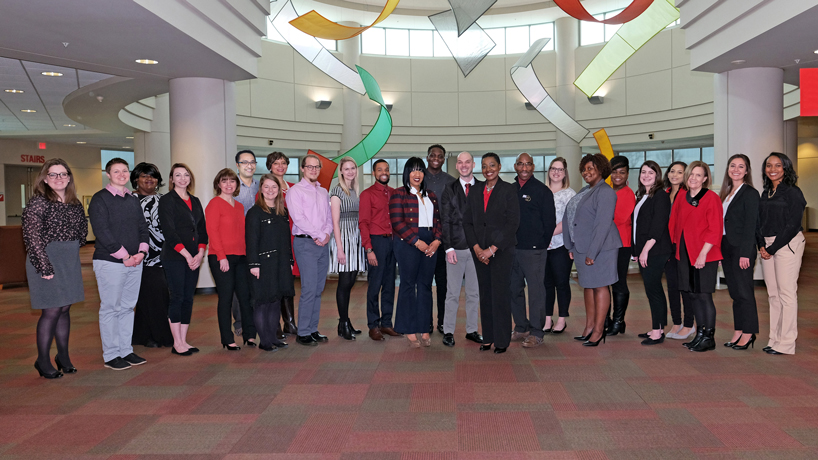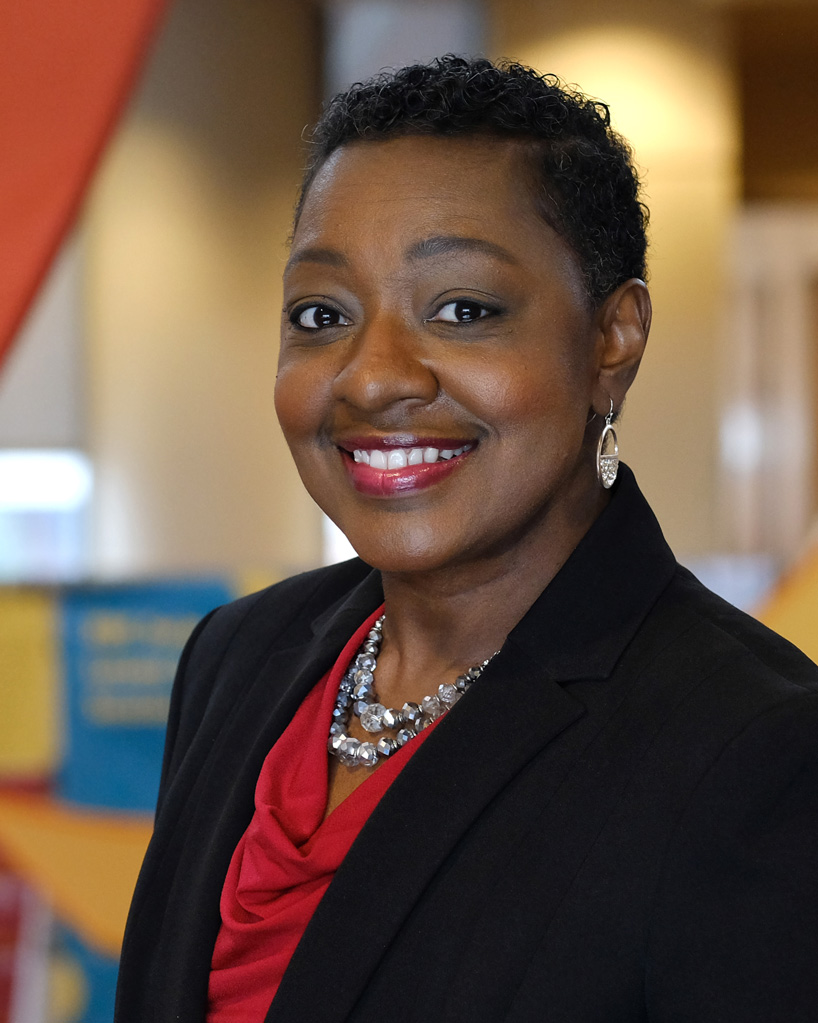
UMSL’s Student Academic Support Services unit is launching a new program to support tutoring, mentoring, financial literacy and other services for 140 first generation students from under-resourced backgrounds with a new $1.3 million grant from the U.S. Department of Education’s TRIO Student Support Services program. (Photos by August Jennewein)
The University of Missouri–St. Louis strives to provide opportunities for students of every background to pursue their educational goals.
But opportunity alone would not be enough if the university did not also offer supports needed for students to succeed.

Assistant Provost for Access and Academic Support Natissia Small will serve as the principal investigator for the new $1.3 million TRIO Student Support Services grant.
A new $1.3 million grant from the U.S. Department of Education’s TRIO Student Support Services program will enhance UMSL’s tutoring, mentoring, financial literacy and other services in order to help students reach their goals. During the five-year funding cycle, the funds will be used to provide annual, targeted support to 140 first generation students from under-resourced backgrounds, many of whom are transfers to UMSL.
“We are pleased for the opportunity to better serve our students and enhance our campus’ ability to meet strategic goals focused on inclusive excellence,” Chancellor Kristin Sobolik said. “There’s a growing need for institutions across the country to provide access to resources that will help first-generation transfer students complete their degree and become educated citizens of the world and leaders that contribute to our workforce.”
The eight federal TRIO programs are designed to identify and provide services for individuals from disadvantaged backgrounds – low-income individuals, first-generation college students and individuals with disabilities – as they progress from middle school through to post-baccalaureate programs.
UMSL’s was one of 1,131 grants selected for funding from the more than 2,000 proposals submitted, and the university received a perfect score for its proposal. The process of building the newly funded SSS program is currently underway.
Natissia Small, the Assistant Provost for Access and Academic Support in Academic Affairs, is serving as the principal investigator and lead for the grant project. Its objective is to increase, by at least 5 percent, the rates at which students persist from one academic year to the next, remain in good academic standing and ultimately earn their degrees.
The grant proposal was completed in a collaboration with partners in enrollment management, student affairs, advising and the Center for Teaching and Learning as well as other faculty and staff members. Beth Eckelkamp, vice provost for student success and academic innovation, is serving as the co-PI, and Bettina Casad, an associate professor and the director of the Behavioral Neuroscience Program, will be the evaluator. Cynthia Jobe and Melissa Laurenti from the Office of Research and Economic and Community Development; Alan Byrd, the vice provost for enrollment management; and Carol Sholy in Institutional Research, were also part of the team that created the proposal.
“We are excited to receive the SSS grant award as it will provide us the opportunity to further meet a unique group of transfer student populations to be served,” Small said. “The TRIO SSS funding allows us to further expand our efforts in meeting academic and non-academic needs of students to overcome barriers that impede degree completion.”
The grant will fund a new director to oversee the program, which will be part of the Student Academic Support Services unit. It also will support a dedicated success coach, office assistant and two student assistants. They will work in concert with a number of campus partners to identify students eligible to participate in this program upon entry with wraparound supports to ensure their success.
“Student participants in the SSS program will benefit from a comprehensive support model that will provide high impact practices to foster a strong sense of belonging while retaining students to degree completion,” Small said. “All of our efforts are guided by best practices to address the critical support needed to combat academic and non-academic barriers that impede student persistence.”
The SSS program will provide participating students with:
- Success Coaching
- Academic Advising
- Tutorial Support
- Mentoring
- Cultural Enrichment and Social Engagement Activities
- Scholarship Resources and Financial Literacy Support
- FAFSA completion assistance
- Success Developmental Workshops
- Career and Professional Development
- Assistance with applications to graduate and professional programs
“As an urban institution, it is imperative that we focus on the growing needs of our constituents,” Small said. “The TRIO SSS funding model undoubtedly aligns with our strategic goals and institutional commitment to provide critical supports for students that will participate in this program. This further leverages our mission of being an effective land grant institution that meets the needs of the community.”














